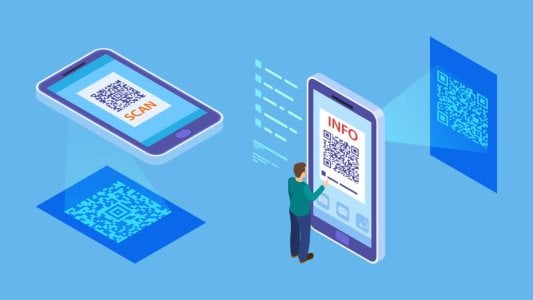Plans to roll out new digital IDs push forward—whether we like it or not
- Replies 52
A nationally-regulated digital identification platform could be on its way for Australians as soon as this time next year.
But is this a good thing? And how does it impact us?
Finance Minister Katy Gallagher revealed at the Australian Financial Review’s Government Services Summit that the system would allow Australians to compile their ID forms–such as driver's licences, Medicare cards or proof of age cards–into a platform to be used by external organisations to verify a person's identity.
This will mean that by mid-2024, Australians will possibly go completely digital when verifying their identity with external organisations like Centrelink, financial institutions, and travel companies.
’That's a pretty tight timeframe, so I don't want to be held to that. But that's kind of my roadmap,’ Gallagher said.
She also noted that the scheme would allow existing state and territory apps to be ‘interoperable’ with the program, meaning it would all work together.
‘We've got the system. It's just not regulated and not in a shape I think that will allow us to drive it forward and give the interoperability and the economy-wide benefits that come from having a national system, but we're very committed to it,’ said Gallagher.
While the scheme has already garnered some outcry from critics concerned about cybersecurity and data retention, Gallagher defended the scheme saying it was proposed to give Australians more control over their information.
‘There is already pushback,’ she admitted.
‘We've seen this, particularly coming out of COVID-19, you know, theories, conspiracy theories about what the government's trying to do.’
'It is about securing your information and protecting your information, and ensuring that you know when that information is shared, it’s done under a regulated system,' she said.
Australia Post, Mastercard, and Australian Payments Plus have already implemented digital verification systems.
But with cyberattacks on the rise in Australia, is this something we should be getting excited about or cautious of?
Just this week, we heard reports of the ATOs verification system falling short. Security loopholes led to over half a billion dollars being stolen from taxpayers. You can read more about that story here.
In response to this security loophole, member @ToniaKisliakov said: ‘These scams are because [Australian governments] don't care enough about taxpayers!’
While member @Shane/# commented: ‘Technology isn't it grand "NOT".’

So, how will we know whether this new system is truly safe? Only time will tell…
Do you think some things should remain as they are, like Medicare cards and licences? As the adage goes, ‘If it ain’t broke, don’t fix it.’
Let us know what you think in the comments below. In the meantime, members, please stay alert to cybersecurity risks if you have to keep your ID information on a digital platform. And if you happen to see something suspicious, be sure to report it.
But is this a good thing? And how does it impact us?
Finance Minister Katy Gallagher revealed at the Australian Financial Review’s Government Services Summit that the system would allow Australians to compile their ID forms–such as driver's licences, Medicare cards or proof of age cards–into a platform to be used by external organisations to verify a person's identity.
This will mean that by mid-2024, Australians will possibly go completely digital when verifying their identity with external organisations like Centrelink, financial institutions, and travel companies.
’That's a pretty tight timeframe, so I don't want to be held to that. But that's kind of my roadmap,’ Gallagher said.
She also noted that the scheme would allow existing state and territory apps to be ‘interoperable’ with the program, meaning it would all work together.
‘We've got the system. It's just not regulated and not in a shape I think that will allow us to drive it forward and give the interoperability and the economy-wide benefits that come from having a national system, but we're very committed to it,’ said Gallagher.
While the scheme has already garnered some outcry from critics concerned about cybersecurity and data retention, Gallagher defended the scheme saying it was proposed to give Australians more control over their information.
‘There is already pushback,’ she admitted.
‘We've seen this, particularly coming out of COVID-19, you know, theories, conspiracy theories about what the government's trying to do.’
'It is about securing your information and protecting your information, and ensuring that you know when that information is shared, it’s done under a regulated system,' she said.
Australia Post, Mastercard, and Australian Payments Plus have already implemented digital verification systems.
But with cyberattacks on the rise in Australia, is this something we should be getting excited about or cautious of?
Just this week, we heard reports of the ATOs verification system falling short. Security loopholes led to over half a billion dollars being stolen from taxpayers. You can read more about that story here.
In response to this security loophole, member @ToniaKisliakov said: ‘These scams are because [Australian governments] don't care enough about taxpayers!’
While member @Shane/# commented: ‘Technology isn't it grand "NOT".’
Key Takeaways
- Aussies could have a national digital ID within the next 12 months, which will mean licences, Medicare cards, and other forms to be verified online.
- Finance Minister Katy Gallagher announced the digital ID plan, suggesting that many states are already implementing digital services to access ID forms.
- The digital ID will not be a new card or number but has been described as compiling existing ID forms into one system in a 'secure, voluntary and efficient way'.
- There are concerns over cybersecurity and data retention put forth by critics related to the digital ID's introduction. However, Gallagher asserts it will give Australians control over their own information.
Do you think some things should remain as they are, like Medicare cards and licences? As the adage goes, ‘If it ain’t broke, don’t fix it.’
Let us know what you think in the comments below. In the meantime, members, please stay alert to cybersecurity risks if you have to keep your ID information on a digital platform. And if you happen to see something suspicious, be sure to report it.








